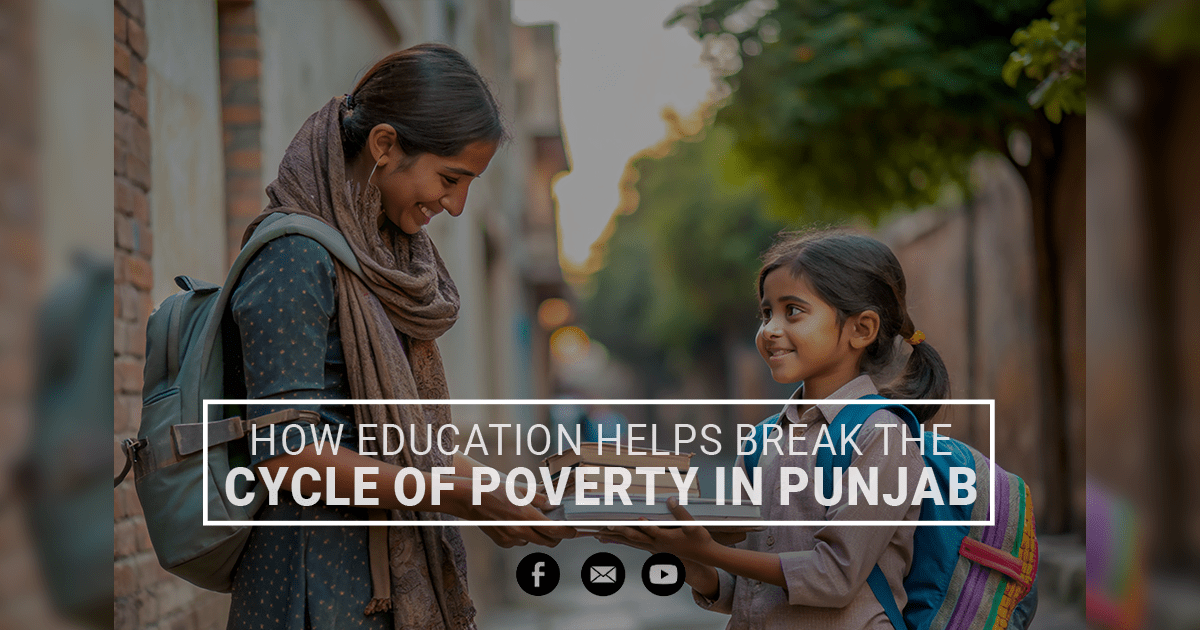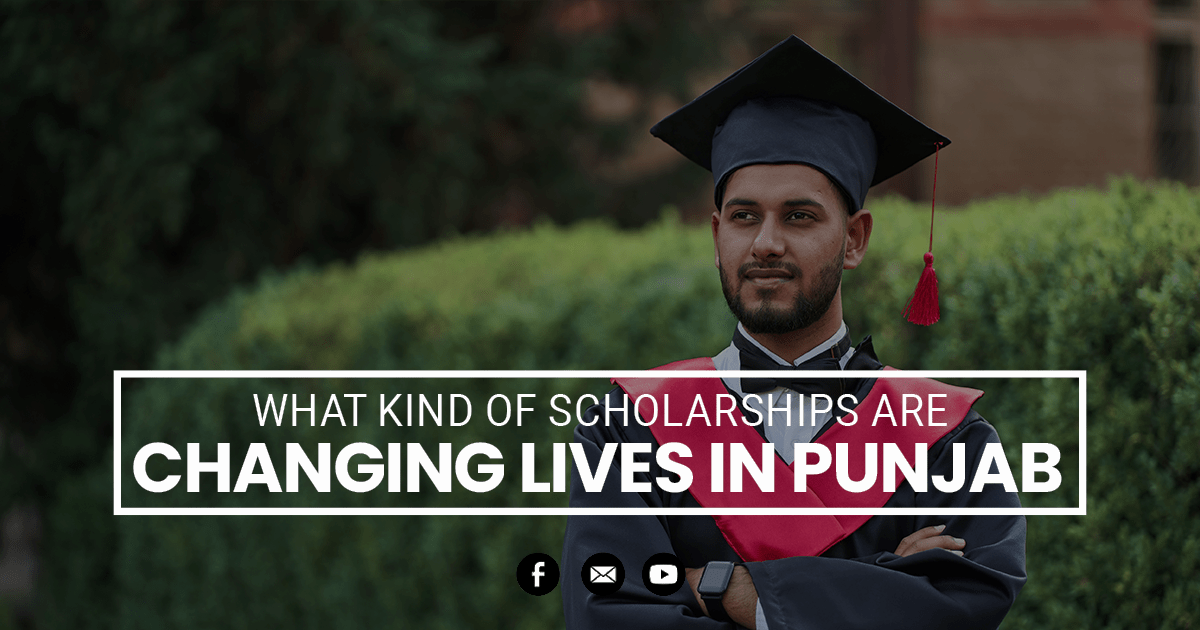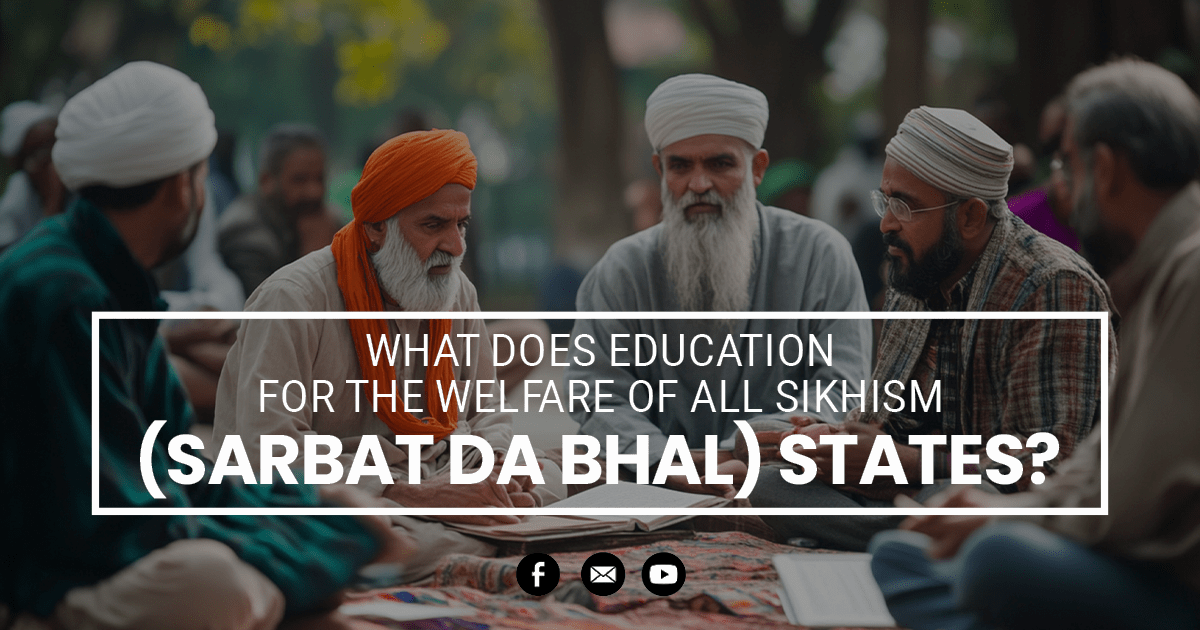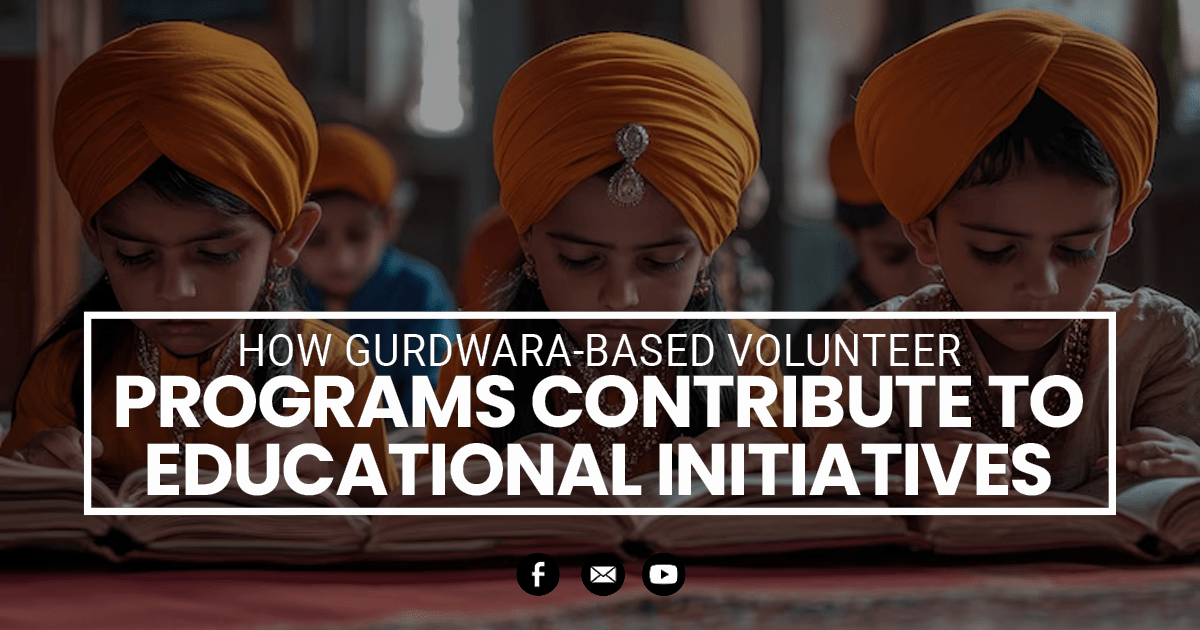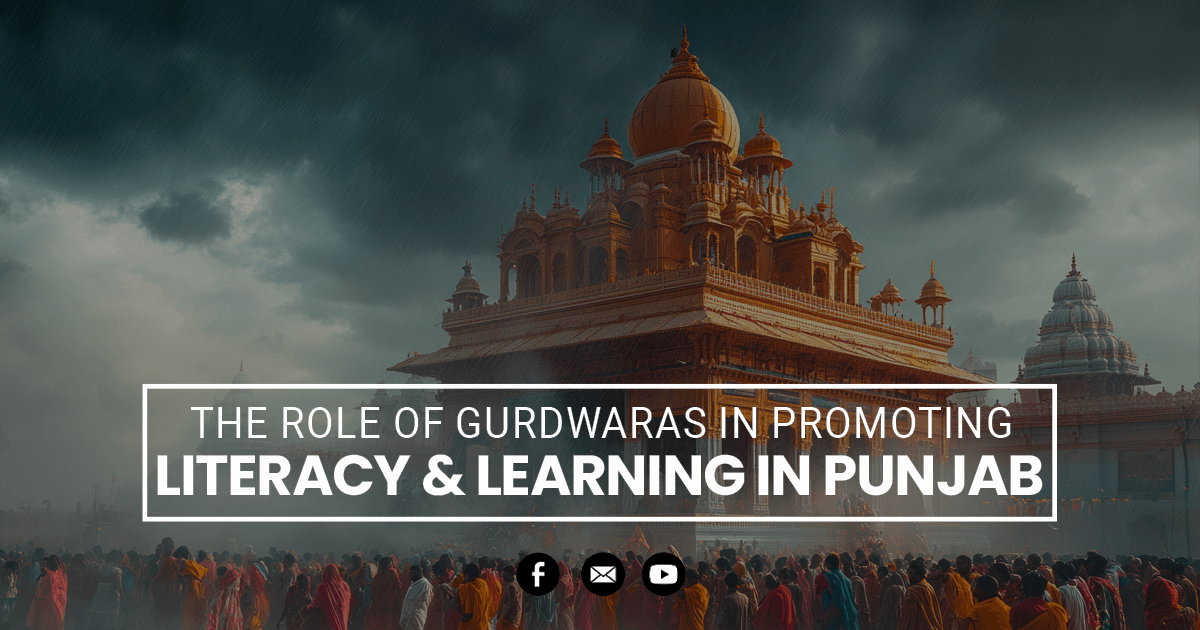To this day, poverty in Punjab education is an enormous issue. A vast majority of people still struggle for their basic life needs along with it. While major populated cities may have developed and overcome the problem of poverty, the urban areas that fall under the region of Punjab are still facing it.
The Indian state of Punjab faces a prevalence of high poverty, mainly in the rural areas. Impoverishment grows with an increase in population. A large population of children in Punjab is forced to work instead of studying, which contributes to perpetuating the cycle of poverty.
Education, however, is a weapon that can break this cycle. By opening up quality education for the children of Punjab, it will be quite possible for them to attain knowledge and skills essential to creating a better future for themselves and their respective communities. Through education, opportunity-chasing in pursuit of better livelihoods can be achieved in reality, thereby breaking this cycle of poverty that has plagued Punjab for generations.
The Reason of Poverty
The main factors contributing to poverty are social and economic issues, which have drastically lowered in the past few years and affect people born to less specific socioeconomic homes.
Children suffer the most from poverty because they often can’t get simple things like education and medical healthcare. Overlooking the situation, parents have to send their children to work and earn so they can have two meals a day. Breaking the circle of poverty for these needy kids is the first step to making sure that after children, women and men, too, get access to their basic needs of life.
Child Poverty Over the Years
Since children are not accessible to education in Punjab, the state of poverty has reached a maximum level over the years. The proportion of poverty has risen in the past years in India. The cycle of poverty starts with being born in an impoverished family, where the children are raised in search of basic resources outside their homes. This deniable access to education also impacts their mindsets as they grow up.
Impact on the Physical and Mental Health of Children
The worst sufferers of poverty are the children who are born into it and who face its consequences until the end of life. Poverty is known to raise a number of issues and affect both physical and mental health. The effects of poverty on children in Punjab, India, come in the form of low rates of education and healthcare.
- Poverty compels many children to work instead of attending school, and the cycle of poverty continues to prevail for generations to come.
- Lack of education and basic resources causes physical and mental health to deteriorate, where children easily fall prey to malnutrition and illness.
- Poverty is disadvantageous as a child may grow up with inadequate learning amidst a general perception that there will be little chance for a promising future.
- The vicious cycle of poverty starts at birth because a child who is born poor may never get to acquire basic needs and education like other children.
- Socioeconomic factors have thus led to the continuation of poverty, mainly in the rural areas of Punjab, and have consequently affected many children’s lives.
Interventions intended to give children in Punjab access to quality education, healthcare, and resources that raise their prospects can help break the poverty cycle.
Helping the Children Get an Education
Education is most important in surviving modern times because it enables a person to recognize the good and bad qualities in other people. It leads to a variety of helpful techniques and investigates necessary experiences.
Education is the only way to secure a child’s future, especially for those living in underprivileged areas within Punjab, India. Proper education gives children an opportunity to learn the appropriate skills, acquire adequate knowledge, and eventually have a chance to break the poverty cycle. Educate Punjab Children campaigns help Sikh children live better lives and explore a better future for themselves and their communities.
Khalsa Care Foundation Gurdwara
Sikh seva is represented in the Khalsa Care Foundation Gurdwara. Educate Punjab helps this Sikh Gurdwara live out the idea of selfless service, which is a big part of the Sikh religion and focuses on assisting the Sikh community.
Your heartful collaboration in this can improve schools, provide essential learning materials, and empower instructors, creating a nurturing atmosphere for every sikh child in Punjab.
Donation Programs
The donation programs are to help sikh households and Gurdwara. Gurdwaras have been places of worship, study, and community for Sikhs for a very long time. Sikh identity and customs are getting stronger. By giving to Gurdwaras, you can support several educational programs for kids that teach Sikhism and give them more educational options. Through the provision of mentorships, scholarships, and other programs, your contribution can help change that.
Education Trusts
Educate Punjab Children Academies Trust is a Sikh non-governmental organization that wants to shape the minds and hearts of young Punjabis. Educate Punjab Children thinks kids should have a consistent learning experience that prepares them for college and work. We want to create a unique space where everyone can grow mentally, personally, and spiritually and find meaning.
Sponsor Educations
Children are at the heart of every society. Many Sikh kids in India don’t go to school. There are families that can’t pay for school fees or materials, and scholarships are only sometimes available. Not as many students learn the important Sikh languages, Punjabi and Gurmukhi. Sponsor Sikh Education helps good kids learn how to support their families.
Your genuine help in these campaigns can help ensure a better future for many children. You can help open certain opportunities and break the cycle of poverty.
For them, the only things that matter are that their kids get a good education and can be better assets in the future.
Final Thought
Education transmits knowledge, the arts of living, and resilience and cultivates a positive outlook; hence, it offers students opportunities to enter a safe and prosperous future in Punjab and beyond.
It provides children with the tools needed to seek better livelihoods and an opportunity to escape poverty. It opens their minds, sharpens their problem-solving ability, and enhances the analytical skills necessary for survival in the modern world.
Moreover, education will help children make independent decisions about health, well-being, and prospects. It will instill in them confidence and self-reliance so that they can aspire to a better quality of life.

